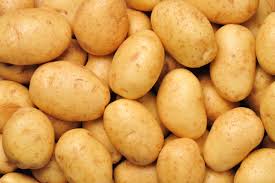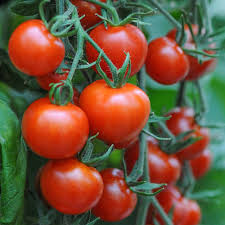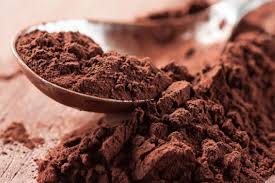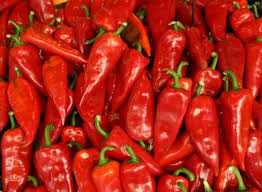Spanish history - and Spanish gastronomy of course - would take a huge turn when a new continent was discovered by mistake, in 1492. It was also the year of the reconquest when the Muslims of Al-Andalus were expelled from most of the Iberian Peninsula. This meant that a lot of the cooking techniques from this culture were disregarded, and so Spanish gastronomy was in need of a revival. Thankfully, the Americas were able to provide that extra lift needed to revitalise Spanish food.
Soon new ingredients would appear in Spain, though some people who looked at them would wrinkle their noses or frown upon them, and it would take many years for some of these vegetables to become acceptable to Spanish palates. Curiously, much of the Spanish diet -if not most- is based on these few ingredients and some would even, someday, save Europe from starving during famine.
 So what ingredients are we talking about? Tomatoes, potatoes, peppers and cocoa as well as wheat. There was hardly any pre-columbine influence in the preparation of food in Spain, but for the use of these vegetables. However, as we mentioned, it's acceptance took a little longer.
So what ingredients are we talking about? Tomatoes, potatoes, peppers and cocoa as well as wheat. There was hardly any pre-columbine influence in the preparation of food in Spain, but for the use of these vegetables. However, as we mentioned, it's acceptance took a little longer.
It is believed that potatoes came into Europe through Galicia, where it was first cultivated. This bulb had been discovered in Peru in 1532, it would take some years till it spread to the rest of the country, and continent, but eventually, it was accepted, especially during the Eighty Years' War, when it fed thousands of Spanish soldiers stationed in Holland. The lower classes took more time to assimilate this new vegetable, preferring turnips and parsnips instead.
 Today potatoes in Spain are one of the main ingredients of the most emblematic dishes in Spanish cuisine: tortilla de patatas, patatas bravas, papas arrugadas from the Canary Islands and many others. Should you ever travel to Spain you will get the chance to taste all the wonders that Spanish cuisine makes with potatoes. But the potato is not only important in Spain of course, but most European countries also have this bulb as a base ingredient for many of their dishes.
Today potatoes in Spain are one of the main ingredients of the most emblematic dishes in Spanish cuisine: tortilla de patatas, patatas bravas, papas arrugadas from the Canary Islands and many others. Should you ever travel to Spain you will get the chance to taste all the wonders that Spanish cuisine makes with potatoes. But the potato is not only important in Spain of course, but most European countries also have this bulb as a base ingredient for many of their dishes.
Tomatoes in Spain were imported from Mexico, as it was an important ingredient in Aztec food. In Spain, it was believed to be unfit for consumption, and it was given a medicinal and ornamental use as well. Nowadays we can't imagine life without tomatoes: pantumaca, gazpacho, salmorejo and many other dishes use it as a base ingredient. Tomato also changed the gastronomy in different countries. What would pizza and spaghetti bolognese be without tomatoes?
 Another very important ingredient was cocoa beans. During the 17th and 18th century chocolate in Spain became a national vice of the gentry. In the Aztec empire, chocolate was consumed very bitter, directly from cocoa and occasionally mixed with wheat flour. The Spaniards had the great idea of mixing it with sugar and it became the most popular drink among the wealthier classes. In fact, the Spanish aristocracy and clergy would drink it at all hours. Too popular in fact for the liking of the church, who decided to forbid it!
Another very important ingredient was cocoa beans. During the 17th and 18th century chocolate in Spain became a national vice of the gentry. In the Aztec empire, chocolate was consumed very bitter, directly from cocoa and occasionally mixed with wheat flour. The Spaniards had the great idea of mixing it with sugar and it became the most popular drink among the wealthier classes. In fact, the Spanish aristocracy and clergy would drink it at all hours. Too popular in fact for the liking of the church, who decided to forbid it!
 Some of the smaller ingredients that made it across the ocean to Spain include paprika which has since become one of the Spanish's favourite spices. This spice is used in a number of dishes in Spanish cooking and is the vital ingredient for transforming chorizo sausages into their characteristic red colour. Before this, chorizo was generally a black or brown colour. It was in the 17th century that they began to combine the sausage with paprika, hence changing the image of the sausage forever.
Some of the smaller ingredients that made it across the ocean to Spain include paprika which has since become one of the Spanish's favourite spices. This spice is used in a number of dishes in Spanish cooking and is the vital ingredient for transforming chorizo sausages into their characteristic red colour. Before this, chorizo was generally a black or brown colour. It was in the 17th century that they began to combine the sausage with paprika, hence changing the image of the sausage forever.
As you can see, many of the traditional dishes that we associate with Spain would not have existed if it were not for Colombus's idea to try and reach China in a different way. Who knows when they would have been brought over to Europe and how they would have influenced European cuisine had they not been discovered by the Spanish....?